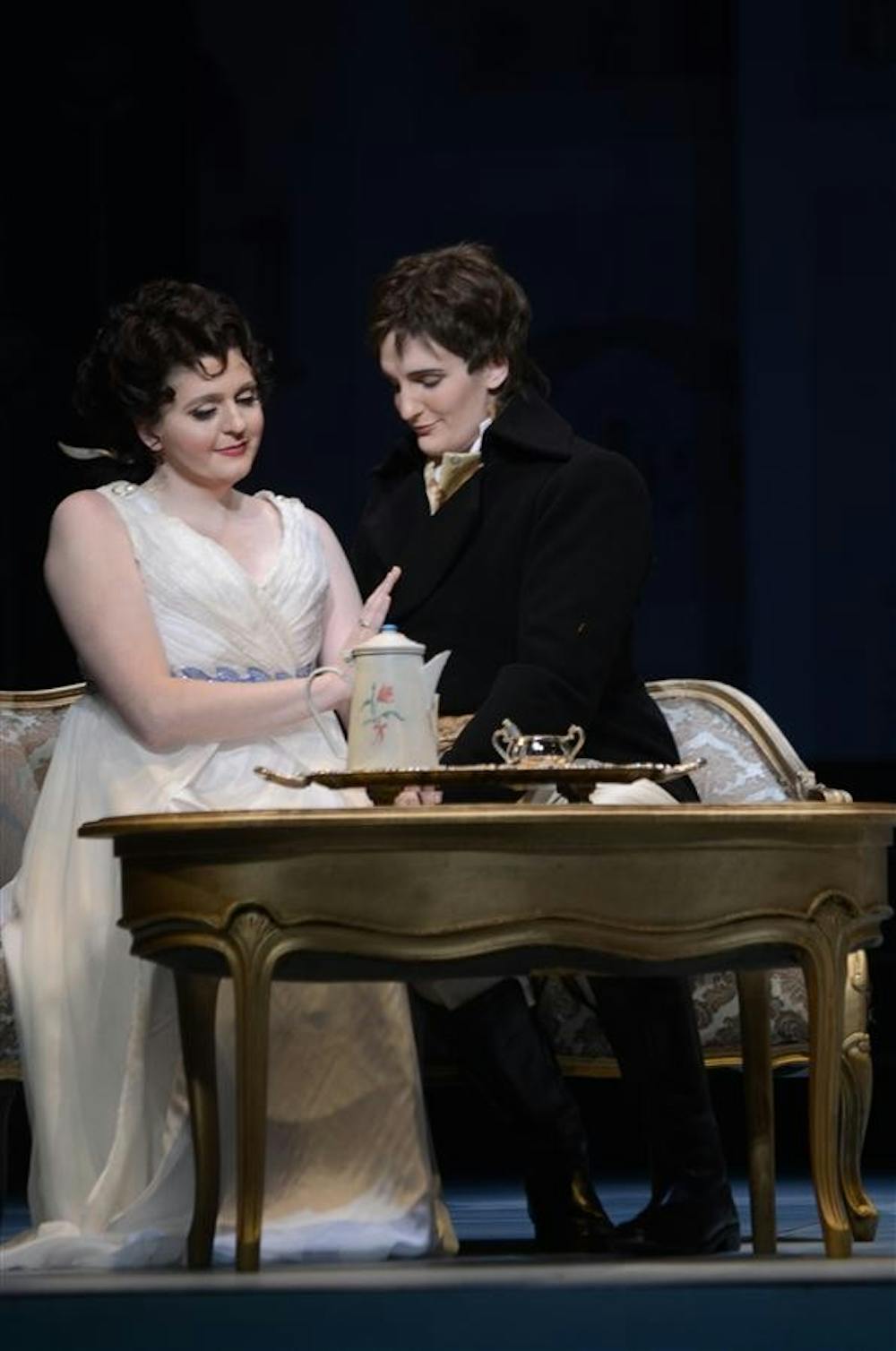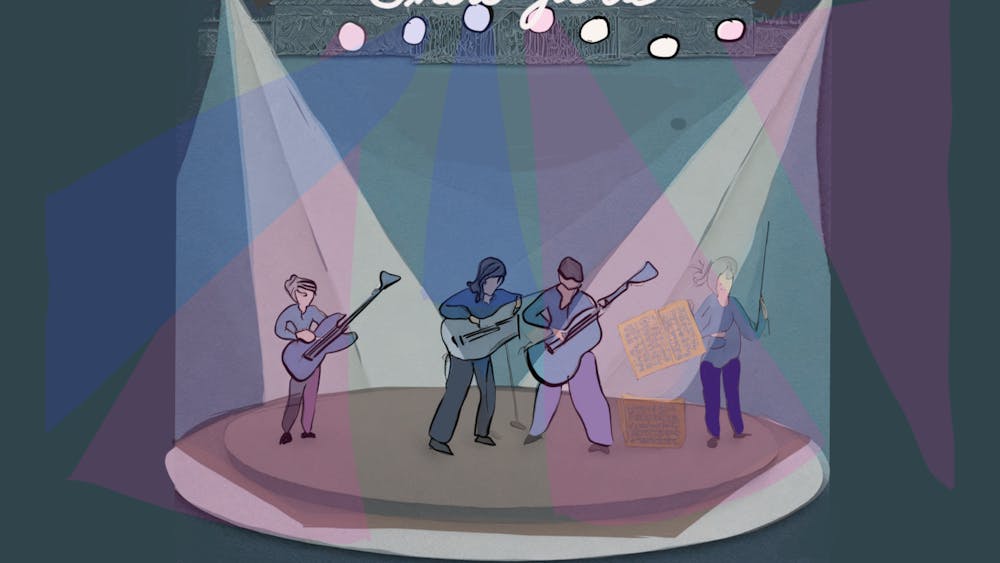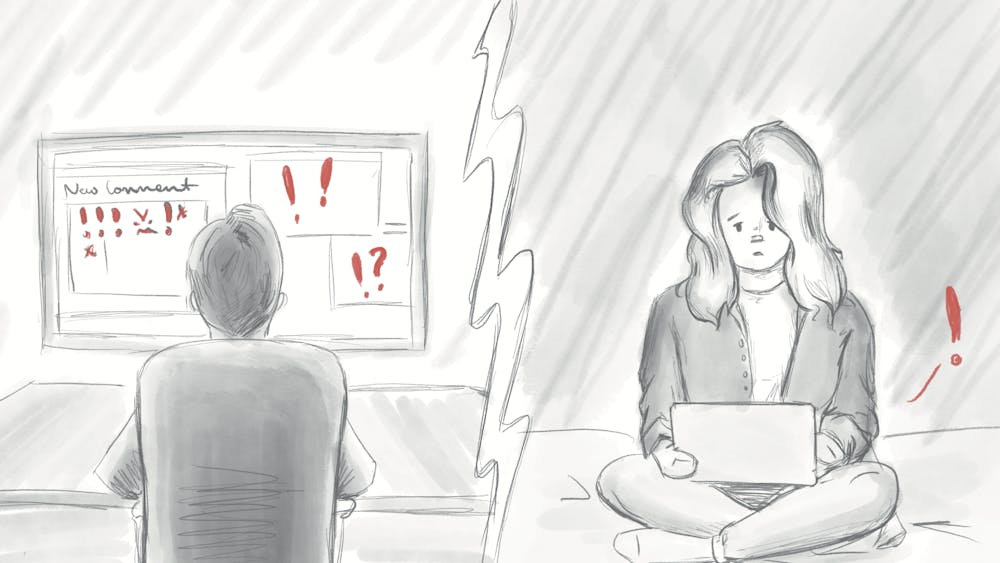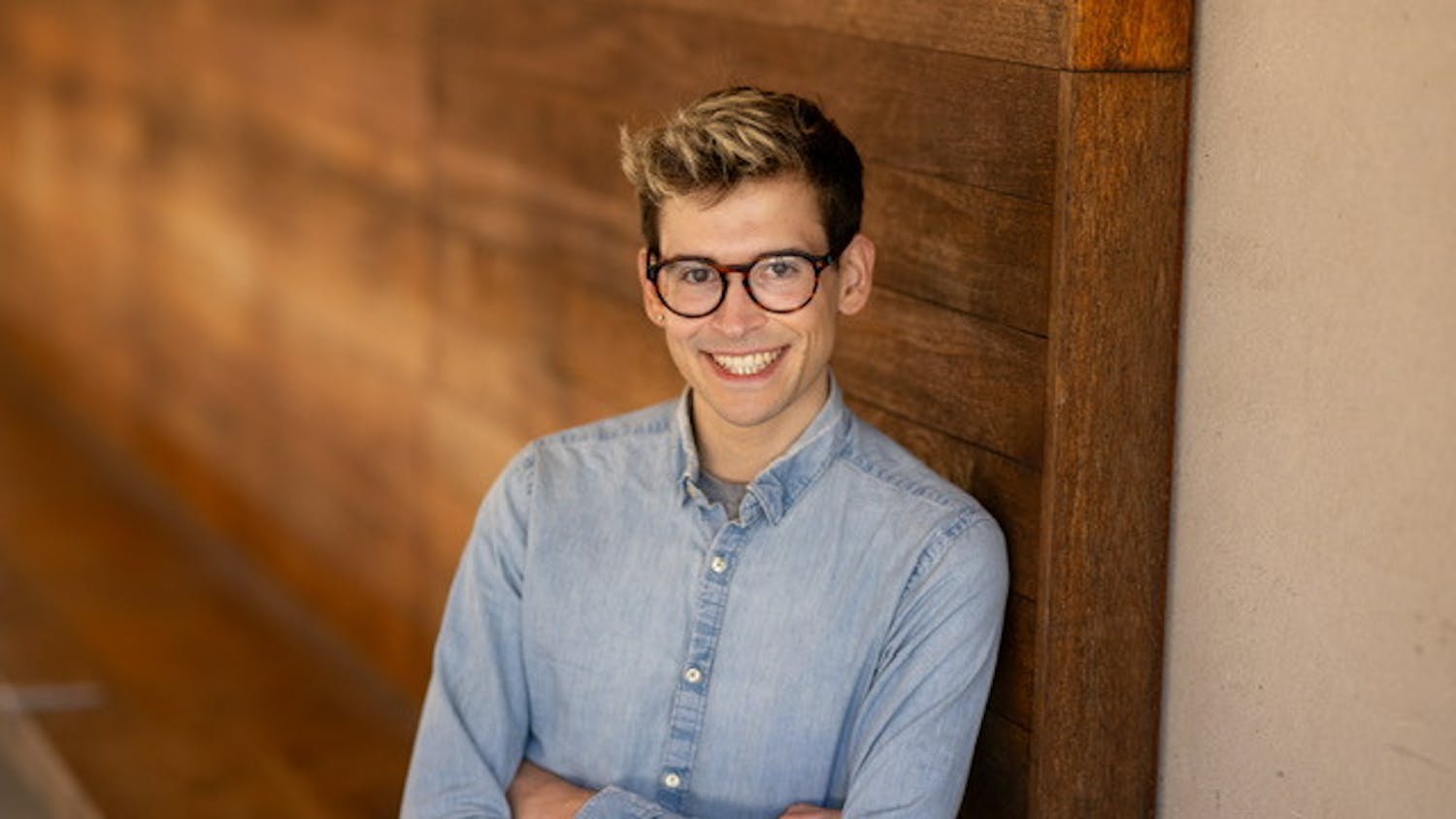To pass as a 17-year-old nobleman, music doctoral student Amanda Russo had to abandon all feminine tendencies and adopt a stiffer frame and posture.
“Girls would maybe lean in with their necks, and boys are much more square,” Russo said. “And the costume helps with that, too, because the costume was very square, angular.”
Russo played the role of Count Octavian Rofrano in “Der Rosenkavalier,” a three-act comic opera staged by the IU Opera and Ballet Theater. It was originally written by German composer Richard Georg Strauss and was first performed in 1911.
Linda Pisano, costume designer for “Der Rosenkavalier,” said Russo’s costume was designed in the new style of the 19th century. During that period, a man’s coat had sleeves deeply inset to create a narrow back and forced the wearer to stand up very straight. High collars and cravats were also trademarks, forcing the chin to be raised upward and the chest to protrude.
In Act II, a sword was attached to Octavian’s waist.
“Any time a sword is worn on a performer, it naturally changes their center of balance and the way in which they must walk and move,” Pisano said in an email.
“Der Rosenkavalier” has become part of the standard repertory for world-class opera houses. It also remains one of the most elaborate works to produce.
This is the second time — the first was in 1966 — the IU Opera and Ballet Theater is staging “Der Rosenkavalier.” The opera clocks in at a hefty four-hour duration and is the department’s largest production to date. Previously, the production was performed in English, but it will be sung in German this time.
Three official months of preparation have culminated in four performances scheduled at the Musical Arts Center: Feb. 24, Feb. 25, Mar. 2 and Mar. 3.
Opening night at the MAC bustled with excitement from both the audience and the performers.
“I didn’t get nervous while I was singing, but I got very excited, and even that can affect my breathing,” Russo said. “When we’re excited or nervous, our bodies respond with the fight or flight. So we have shorter breaths and our mouths get dry, which are horrible things for singers.”
Russo said she does yoga frequently, which helped her learn to take deep breaths to overcome excitement. She also made sure to watch her stress levels, her diet and how much she spoke.
The length and size of the production called for greater measures from everyone involved. There were two main casts, a 48-strong chorus, a full orchestra and a large crew. The first opera of the season, “Albert Herring,” had to be moved off-campus to free up resources for the “Der Rosenkavalier” team.
“It’s quite an achievement for anybody to do this opera, but it’s a special achievement for a university to do it,” conductor David Effron said. “(Strauss) is great with string playing and wind playing. He knows the orchestra so intimately and what the capabilities of the instruments are — one of his great gifts — he often presses the instruments to the limits of what they can do.”
Effron said the orchestra rehearsed three times a week in November, three times a week after students returned from the winter break and five times a week leading up to the show.
Singers, on the other hand, met 10 times last year, and up to the show, they underwent coaching five hours a day, six days a week.
But, for some, training began even earlier.
Pauliina Linnosaari, who arrived in Bloomington from Finland last year, was cast in the role of Princess Marie Thérèse von Werdenberg, otherwise known as the Marschallin, Octavian’s much older lover. In preparation for her role, Linnosaari began research in April, more than a year before she had to perform onstage at IU.
“It really started earlier for me, but I still think it should have started even earlier because it’s a big role to prepare for,” Linnosaari said.
The show opens with Octavian and the Marschallin in her lavish boudoir. In the privacy of her bedroom and with her husband away at battle, the Marschallin becomes simply Marie Thérèse, while Octavian is affectionately Quinquin.
But by the end of Act I, the Marschallin, acutely aware of their age difference and struggling to embrace her inevitable aging, has dissolved her affair with Octavian. She proceeds to orchestrate a meeting between the young count and Sophie von Faninal, 15, and is sure of their potential pairing.
Sophie, however, has already been promised to Baron Ochs auf Lerchenau. When the two young people fall in love, complications, drama and hilarity ensue.
In the end, Octavian is forced to choose between his young, pure love with Sophie and his more reverential love of the Marschallin.
Apart from touching on the different types of love, the message of the opera is about the changing seasons of life and the decisions that have to be made to help people move past previous relationships.
“But who is wrong and who is right? It’s not that simple,” Linnosaari said, referring to the Marschallin’s decision to “give” Octavian to Sophie. “These kinds of decisions are from real life, even if the whole opera is kind of fantasy. She’ll move on, and I think that’s what we all do in our lives. When something happens, it feels really big at the particular moment, but then time passes, and then you find yourself in another situation and it’s fine. We move on.”
IU Opera stages 'Der Rosenkavalier' for second time

Get stories like this in your inbox
Subscribe





